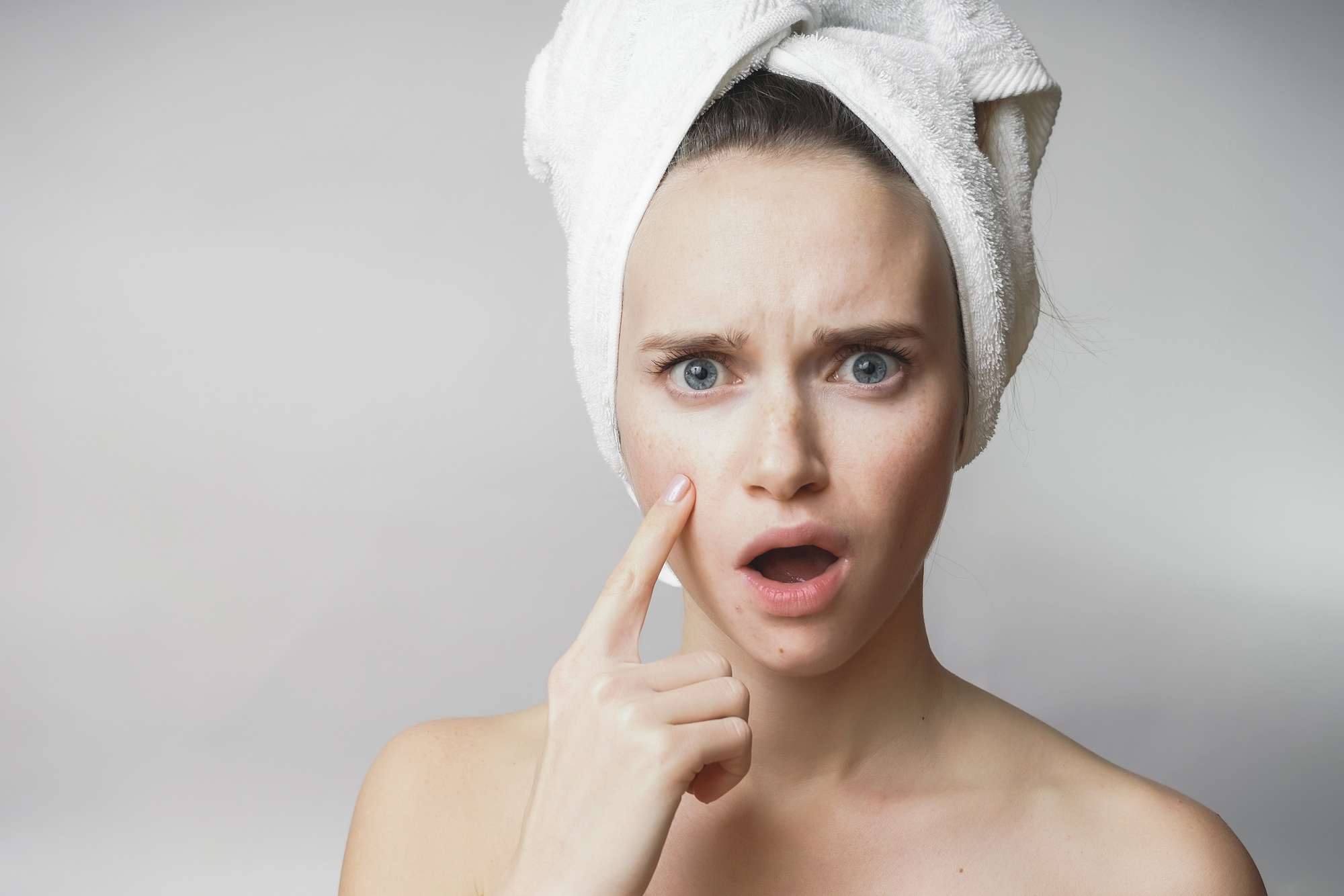Do you suffer from acne? Or do you know someone who does?
Not only is it annoying to constantly have to deal with new spots appearing and old ones healing, but it can also be extremely distressing to see your skin damaged as a result. And as if the redness and swelling were not bad enough, you may also be wondering about acne scarring.
What causes acne scarring? And is there anything you can do to prevent it? Find our guide below to discover more information on acne and the various effects it can have not only on the appearance of the skin but also on the mental health of sufferers.
Inflammatory Acne
Inflammatory acne is a type of acne that is characterized by red, swollen lesions such as papules and nodules. When inflammatory acne lesions break the skin, they release the bacteria, Propionibacterium acnes, which triggers an immune reaction leading to inflammation and scarring of the skin.
Scars may also result when large inflammatory lesions cause deeper damage to the skin tissue. In addition, long-term inflammation can also lead to collagen breakdown, which can result in visible depressions referred to as ‘ice pick’ or ‘boxcar’ scars.
Picking Or Popping Pimples
When a person picks or pops a pimple, they are rupturing the underlying acne cyst or follicle and introducing bacteria and oils into the skin. This causes inflammation, generates the production of collagen, and results in red and raised scarring. The rupture of the cyst also leads to the release of fatty acids, which can irritate and further damage the skin tissue.
As a result, acne scarring often has both a red and raised component and a pitted or indented component. Additionally, scarring can occur as a result of squeezing or picking out blackheads and whiteheads.
Delayed Or Inadequate Treatment
Delayed or inadequate treatment for acne can lead to deeper inflammation in the skin, which is more susceptible to scarring. For severe cases of acne, an infection could occur from picking or squeezing, leaving behind a more severe scar. Seeking professional guidance for effective acne facial treatments is crucial in preventing such complications. Additionally, improper use of topical prevention and treatment can cause excessive dryness, which can lead to deep scarring.
Genetics
Genetics can also determine the severity of acne and how difficult it can be to treat; if a person has a strong genetic predisposition to scars, they may need to work even harder to ensure they reduce the risk of scarring. Indications of a strong genetic link to acne can include having multiple close family members that have had the same issue, an unusually severe case of acne, or having multiple outbreaks of acne over a short period of time.
Hormonal Changes
Hormones play a vital role in regulating sebum production – the oil that lubricates and protects the skin. When hormones become unbalanced, they can cause an overproduction of sebum which can clog pores and lead to acne. The bacteria that colonize acne lesions can cause further inflammation and irritation, resulting in scarring.
In some cases, scarring can occur even if the inflammatory lesions are not picked, squeezed, or scratched due to the depth of the inflamed lesion. Those with a personal or family history of hormonal imbalances are more at risk for acne scarring due to numerous hormonal disturbances that can be triggered by stress, puberty, menstrual cycles, medication, and other environmental factors.
Excessive Oil Production
Acne scarring is an unfortunate result of overly active oil production. When our skin naturally produces oil, it often causes our pores to become clogged. This clogged pore will become a whitehead or blackhead, which is a mild form of acne. If the pore becomes inflamed, it can swell and become a pimple.
If this pimple is picked or scratched, it can cause further damage to the skin which leads to acne scarring. Excessive oil production can also lead to cystic acne.
Bacterial Infection
As bacteria, specifically Propionibacterium acnes (P. acnes), begin to accumulate in skin pores, the body responds by producing excess mucus and other inflammatory mediators in an effort to fight the infection. This can cause the pore to become engorged and blocked.
As the infection progresses, skin tissue in and around the pore becomes damaged as the bacteria continues to spread, resulting in acne scarring.
Skin-Picking Disorder (Dermatillomania)
Acne scarring is caused by a wide variety of factors, including illness, infection, medical treatments, and skin-picking disorder, otherwise known as dermatillomania.
Acne breakouts are compounded by skin-picking disorder, which involves compulsively picking the skin in order to relieve feelings of guilt, helplessness, and mild nostalgia.
Poor Wound Healing
This poor healing can cause the body to not produce enough collagen at the site of the acne lesion, resulting in the formation of a depressed scar or an atrophic scar. Meanwhile, poor wound healing can also be a result of an infection, which can lead to an increase of inflammation in the lesion, creating hypertrophic or keloid scars that appear raised on the surface of the skin.
Collagen Loss
Collagen is a natural protein produced by the body and is responsible for maintaining skin elasticity and firmness. When acne occurs, previously healthy skin cells are damaged, resulting in a loss of collagen. This means that the skin cannot repair itself in the same way as it could when there was an adequate amount of collagen present.
Medications such as corticosteroids and androgens can stimulate oil production, which leads to excess sebum and clogged pores that can worsen acne. Some birth control pills and other hormone medications can also trigger a skin reaction that may cause scarring.
Other medications like isotretinoin are specifically prescribed to prevent scarring from severe acne by reducing the production of oils, but there is a risk of side effects that may cause acne scarring. In some cases, these medications may cause severe, deep scarring that is difficult to treat. View here for scar treatments to minimize the appearance of these scars and improve your skin’s overall health.
Identifying the Culprits: What Causes Acne Scarring?
So, what causes acne scarring? Acne scarring is a result of inflammatory responses in the deeper layers of the skin that can persist long after the acne has cleared. To avoid scarring, it is important to manage acne early on and seek professional help if necessary.
You can also use specialized treatments that can influence the severity of scarring and improve skin health. Try it today and achieve a flawless complexion!
In the meantime, check out some of our other articles where you can learn more about real solutions to real problems.






